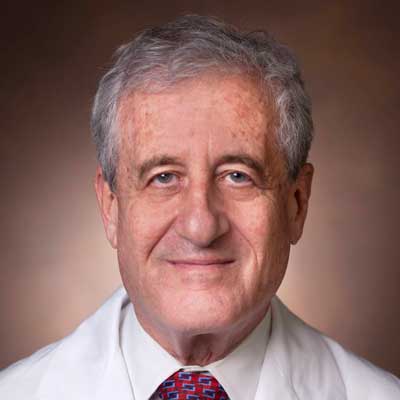Under an American Heart Association® Strategically Focused Research Networks grant, Vanderbilt University Medical Center investigators will use machine learning to probe the discrete mechanisms behind arrhythmia atrial fibrillation (AF). The results could identify distinct clinical features, genetic underpinnings, causes and biological pathways in different subgroups of patients with AF.
Atrial fibrillation has been viewed as one big bucket for too long, says Dan Roden, M.D., interim director of the Division of Cardiovascular Medicine at Vanderbilt. He is leading the research with collaborators in the division, including assistant professor Quinn Wells, M.D. and instructor Giovanni Davogustto, M.D.
“We hope to provide clarity about what clinical features and genetic variations characterize different patient populations so we can start to get away from a one-size-fits-all approach in prevention and treatment,” Roden said.
Said Wells, “Our work could result in a more sophisticated AF classification system based on underlying biology. Ultimately it can facilitate precision risk stratification, tailoring of therapeutic strategies, and rational AF clinical trials.”
“We hope to provide clarity about what clinical features and genetic variations characterize different patient populations so we can start to get away from a one-size-fits-all approach in prevention and treatment.”
A Treasure Trove of Data
Wells and collaborators developed machine learning algorithms allowing them to cull through three million records in BioVU, Vanderbilt’s biobank. They identified over 65,000 patients with AF who had rich, detailed, clinically relevant EHR data. More than 15,000 also had available genotype data. The team discovered subgroups with similar characteristics within the overall population. They are now using genetic association and risk score analyses to evaluate whether these groups have distinct clinical outcomes and to investigate any underlying genetic basis.
“Atrial fibrillation is a very heterogenous disease, and most of the causes relate to other cardiovascular disease and age,” Wells said. “However, particular groups with commonalities began to fall out. For example, we found people who got AF 10-15 years younger than the average, with few comorbidities and no other explanation for their condition except a genetic predisposition. This tells us that patients with early onset AF are genetically a distinct subpopulation.”
Mapping Genetic Risk Factors
Unlike diseases like cystic fibrosis or Huntington’s disease that pass on through a single gene, AF genetic risk is almost always a confluence of many variations. The researchers are looking at multiple genetic risk factors and their biological pathways.
“We know that sodium channel genes affect the electrophysiology of heart cells, for example, and that has taught us a lot about AF,” Wells said. “But many people with AF don’t actually have a defect in this pathway. What, then, are the underlying drivers, the biology, and is there something we can do about it?”
The team is paying particular attention to the role inflammation plays in AF, its genetic underpinnings and how this manifests in different etiologies. If they find that inflammation is a primary driver in certain subgroups of people with AF, it will take them closer to a precision medicine approach for those patients.
A New Paradigm for AF
“The way we have historically classified AF has nothing to do with the underlying mechanisms,” Wells said. “We say ‘paroxysmal,’ ‘persistent’ and ‘permanent,’ but those are just arbitrary labels based on the length of time someone is out of sinus rhythm. We need a mechanism-based definition of AF. That will make us smarter about the way we diagnose and treat all AF.”
The machine learning approach will enable parsing of all kinds of disease subgroups at an unprecedented level. “It lets the data speak for itself and identify subgroups in the broader population, with limited human bias,” Wells said.
“We need a mechanism-based definition of AF. That will make us smarter about the way we diagnose and treat all AF.”






